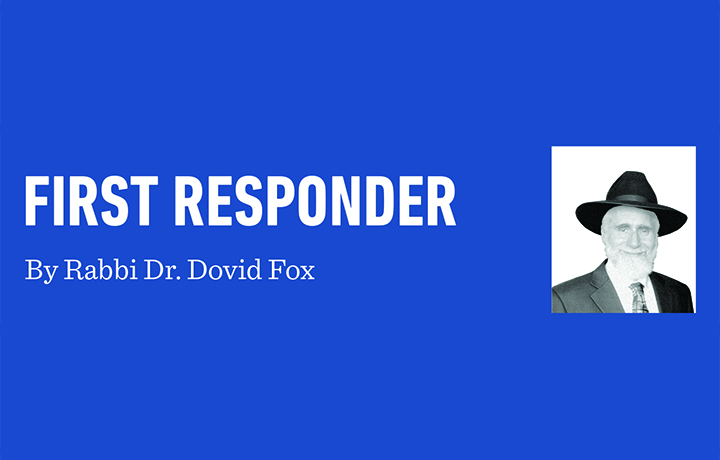Gullible Travels
The Talmud (Yevamos 121a) tells the story of when Rabbi Akiva was shipwrecked at sea. He managed to find a piece of lumber from the boat floating in the water and he held fast to it. Eventually, he made it to shore and when he was asked how he managed to survive the stormy seas and the raging waves, he explained that he managed to “surf,” as if from wave to wave, accepting each upsurge as a discrete event, rather than experiencing the tumultuous gale as one massive predicament to overcome.
Some of us have developed a similar strategy for dealing with the persistent, recurring raging waves of terrorism which have beset our people, and have recently taken on a global form. We hear about an assault here, an attack there, a threatening presence in this place, and a merciless view of us someplace else. Slowly we are being conditioned to view each anti-Semitic event as an “isolated incident” rather than internalizing them as ongoing escalations which, like the mythological Hydra, have many different faces but one single body.
People cope with fear in different ways. Some deny the threat, some become immobilized with fear, dread, and anxiety, while others try to protest and prevent these incursions from happening. When the threats are real and when they proliferate, it’s harder to deny them, harder to remain passive, and almost foolhardy to try and combat them. That leaves people with the choice of living with anxiety or with the option of accepting the media’s attempt to “normalize” them, minimize or dismiss them, or even justify what is happening “in context.”
What is the healthiest strategy? Jonathan Swift in his classic satirical novel on human nature, “Gulliver’s Travels,” speaks about how the protagonist was visiting a land of tiny people and, feeling safe and secure, lies down to take a nap. He is awakened by a microscopic jab followed by another and another. The people of that land, armed with swords the size of pins, attack him. Despite each teeny pin prick being rather negligible, the accumulation of them begins to take their toll. He starts to bleed and is injured. The metaphor? The result of many small events can add up to feeling like a massive assault. You can only ignore it for so long.
The survival strategy of Rabbi Akiva at sea is a superb lesson in maintaining faith and “keeping one’s head above water” during adverse times. From the standpoint of our distinctly human traits, such as our thoughts, feelings, attitudes, and physical reactions to threat and trauma, it is essential to acknowledge that each “wave” is still a “wave” and we are impacted and affected by exposure to threat and trauma. It is not normal to remain impassive when lives are at risk, when people are killed, and when destruction occurs in our midst. Our faith can carry us until we are past the danger; however, our voyage through the stormy seas of anti-Semitic hatred will be somewhat easier when we allow ourselves to feel our emotions, take stock of our reactions, and recognize that we are undergoing a challenge and a trial and our job is to cope while remaining steadfast people of faith.
Our task is to remain stable and wholesome role models to our families and even beyond our immediate Jewish community when we provide supportive, caring gestures to those who seem weaker and may succumb to the haunting horrors of religious persecution.
The strategy here is not to close our eyes, our minds, or our hearts, but to address the fear, bolster our faith, and work on becoming more hopeful. But hope without reality is a gullible way to travel. Hope that emerges from knowing what we are confronting will provide us with clear-minded and heartfelt resolve to find our strength and persevere past the darkening clouds. n
Rabbi Dr. Dovid Fox is a forensic and clinical psychologist, and director of Chai Lifeline Crisis Services. To contact Chai Lifeline’s 24-hour crisis helpline, call 855-3-CRISIS or email [email protected]. Learn more at www.chailifeline.org/crisis.












